WEST VIC REGION


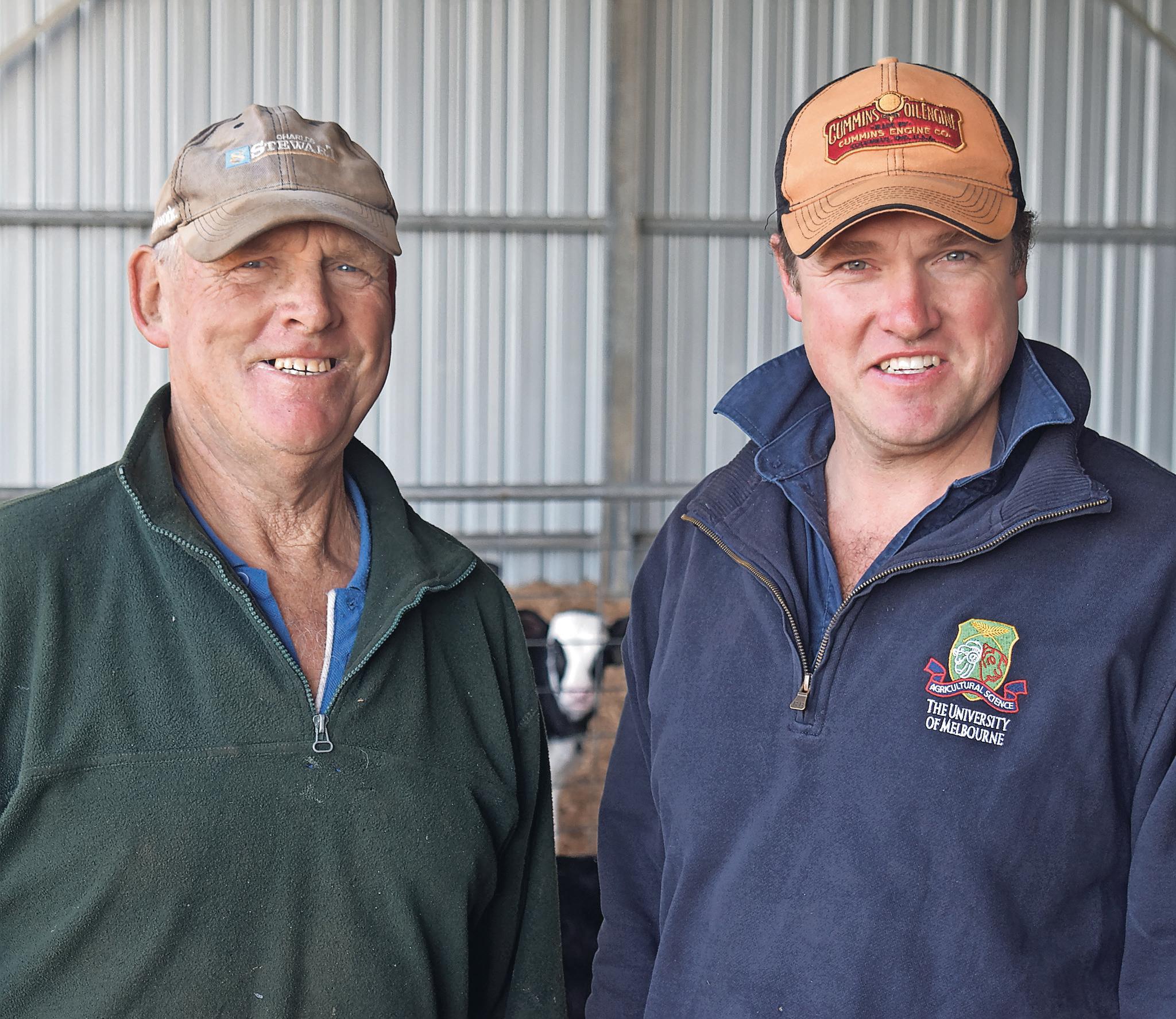

Phillip and Alistair Harris are second and third generation farmers with an eye on the future while embracing the lessons of the past. Page 7.
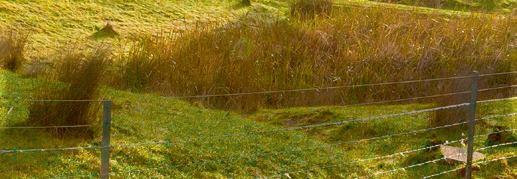

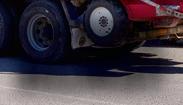


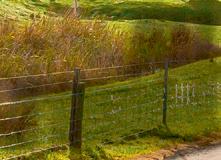

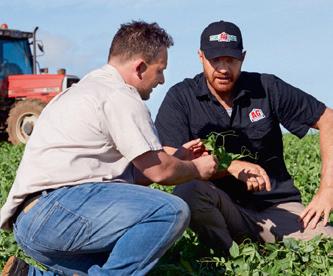

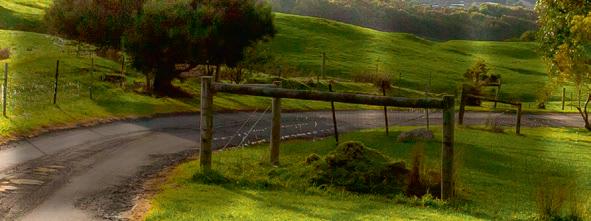
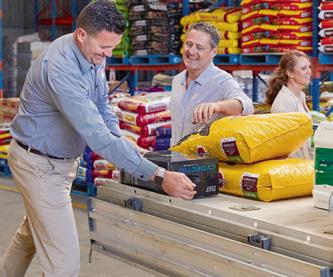

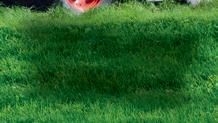

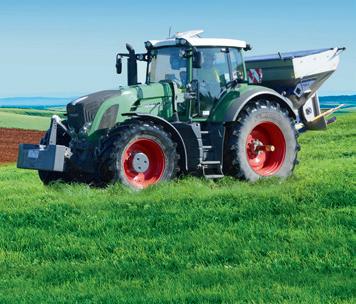




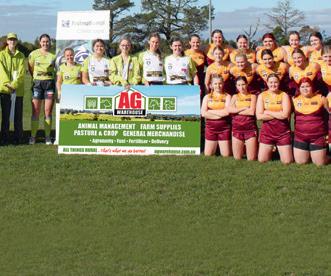

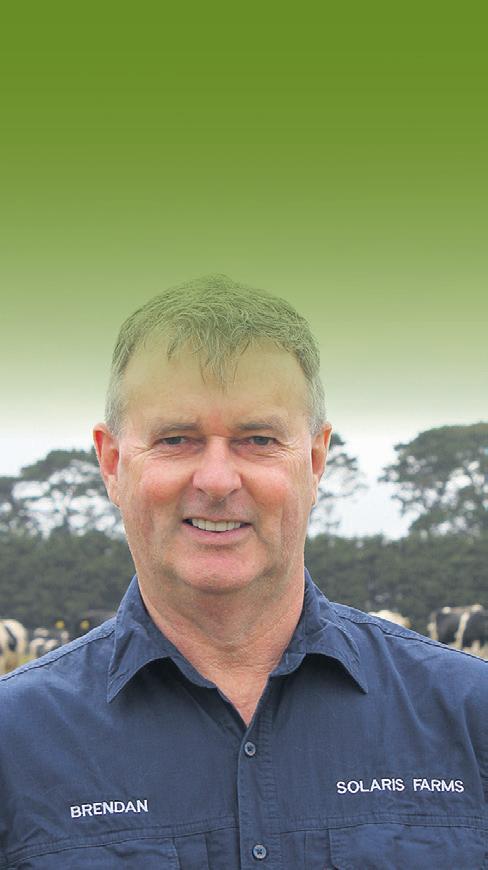






Phillip and Alistair Harris are second and third generation farmers with an eye on the future while embracing the lessons of the past. Page 7.


























BY BRENDAN REA
IT IS mid-July, and rain has finally arrived in Allansford.
It has been a very difficult autumn and winter here, as it has been for much of the south-west.
As farmers, we’re all used to managing the variability of the seasons, however, this is my 45th season working the farm at Allansford and this is the most difficult in my memory.
The farm has had a B-double truckload of vetch coming every second day, and of course that adds to both costs and the workload for myself and my staff.
Winter feeding will continue to be challenging, with low feed availability and the dry conditions continuing to keep hay and grain prices in our region high.
With fodder reserves diminished and little pasture after a long dry autumn, I am now hoping to manage winter feed and set up for a successful spring.
I’m not alone in these challenges; many farmers in the south-west are in similar positions, experiencing either no autumn break or the latest break they can remember.
I think what’s important to keep in mind is to make sure that you’re not to make bad longterm decisions based on short-term issues. Get some advice to help to think things through and have a plan.
This was the focus of the Tactics for Dry

Times seminars WestVic Dairy hosted across the region over the past two weeks in Colac, Camperdown, Heywood and Koroit.
Developed in collaboration with Agriculture Victoria and the Industry Leadership Group, these sessions provided an opportunity to touch base with other farmers and hear practical advice from local agronomists, vets and business consultants who understand the region’s current conditions.
They offered valuable resources to make the most of winter and spring.
WestVic Dairy is also able to organise oneon-one sessions to support farmers with professional advice on their situation and management decisions that need to be made in the light of the current season.
Contact the WestVic Dairy office on 5557 1000 or email info@westvicdairy.com.au to book a session.
These Tactics for Dry Times sessions were specifically created to address the needs of farmers in the south-west region.
This underscores the importance of including a range of farmer perspectives on the WestVic Dairy board to effectively guide and meet the needs of south-west Victorian dairy farmers.
The WestVic Dairy Board is currently looking for passionate farmers and specialists to join the board.
This is a terrific opportunity to give back, shape the industry’s future, and develop your leadership skills.
It is extremely rewarding to work with a team of like-minded individuals who want what’s best for our region’s dairy farmers and industry.
If you are interested in this challenging and rewarding role, I encourage you to submit your application by COB on Thursday, August 15. Visit https://westvicdairy.com.au to find out more and apply.
Your knowledge, perspectives and input would be most welcomed by our board of directors.
As always, please reach out to any of the WestVic Dairy staff or board directors if you have any questions or suggestions — we are here to help.
– Brendan Rea is the WestVic Dairy chair.

BY RICK BAYNE
WESTERN VICTORIAN farmers
have been advised to start budgeting and seek help if needed, but to avoid panic decision making that could have long-term repercussions, as they battle through a tough season.
The first of four Tactics for Dry Times seminars hosted by WestVic Dairy in Camperdown on July 23 gave farmers tips on animal health and performance, agronomy, business and mental health and wellbeing.
The seminars highlighted the need for long-term planning and not making impulsive quick fixes, with farmers being urged to do a budget and follow it, understand where their herd is now and where they need to get it through this difficult period, get the best value for their spending, and to call for help sooner rather than later if needed.
Speakers urged farmers not to short-change their future by making poor decisions now.
The Camperdown seminar included Rural Financial Counselling Service Victoria West rural financial counsellor Karen Brady; WestVic Dairy extension adviser, animal health and performance, Debbie Twiss; Webber and Chivell agronomist Andrea Roberts; and agribusiness consultant Fiona Smith.
Ms Twiss urged farmers to make sure they effectively spend their money to protect their herd’s health and reproductive ability.
She urged them to develop a feed plan, ensure all animals have access to feed, dry off cows early if they have a body condition score 4-4.5 in late lactation and look out for other diseases such as lameness.
Ms Twiss warned that lower body condition could lead to reduced reproductive output.
Farmers should also review their stocking rate if the dry season continues and look at what historically works on their properties.

Ms Smith said it was a year to focus on basics such as milk solids as a percentage of liveweight, levels of home-grown feed in the diet and the overall costs in the business.
“Are there things that can be put off?” she asked.
“There has been a fair bit of catch-up on repairs and maintenance in recent high-milk price years and in capital improvement. This is the time to look at what we can put off in the business to make sure we can be cash-flow positive at the end of the year.”
However, she warned that while some deferrals could be smart, some could have long-term implications.
“Be careful about cutting feed, nitrogen, animal health, labour and breeding strategies. They just won’t have an impact on this season but over multiple years.
“If you change your breeding strategy this year, you could have four years of possible pain to come. If you pull out feed, it will impact your cash flow this year and years to come.”
Ms Smith said some farm businesses were looking to reduce labour but this could be risky. “That might seem like an easy fix but if you get rid of too many staff, you might not have the time to focus on your business,” she said.
While supporting the overall concept of dairy-beef crosses and retaining animals on-farm, Ms Smith said in areas where rainfall had been an issue, farmers don’t want passengers eating the feed that
Ms Twiss added that “knowledge is power” and recommended farmers ensure their team is trained in heat detection and other vital functions.


milkers need. “This isn’t the year to carry them.”
She urged open communication with banks, suppliers and business partners and said good managers would find a system that suits their farm and best balances the natural, financial and people resources.
“Budgets will be crucial and you need to focus on cashflow. It would be worthwhile getting a service provider to help if needed.”
Ms Smith said a high percentage of home-grown feed going into the milkers meant less variability in tighter milk price years.
“You need to make timely and efficient decisions and assess every part of your business. Don’t make rash decisions that will have impacts for years to come.”
Ms Brady urged people to reach out for help earlier rather than later, adding that rural financial counselling is a free and confidential service.
“We know that costs have gone up, the milk price is going down and it is a challenging season. Financial
pressures and the other issues we’re seeing can impact on wellbeing and mental health for our farmers.”
The service can help with cashflow budgets, negotiate with lenders, develop a strategy to get farmers through and identify potential income support grants.
“It’s no secret that rural blokes are high up in stats that we don’t like to see,” Ms Brady said.
“Early engagement is always preferred before something becomes a crisis, though it’s better late than not at all.
Farmers can contact wellbeing or financial advisers on 1300 735578.
Cobden farmers Jarrod and Lauren Meade were part of the Camperdown session.
Jarrod, a sixth-generation farmer, is involved with the Profitable Feeding Systems program which instigated the series of Tactics for Dry Times seminars.
“We generally only meet once a year but with the dry we had an extra meeting and this came from that,” he said.
“It has been helpful and hopefully we can get the information out to farmers.”
Jarrod and Lauren are coping okay with the season but are worried about the impact of the milk price drop.
“We’re lucky and have some irrigation and so haven’t had to bring in too much hay,” he said. “The biggest thing going forward will be the drop in milk price.”
Mr Meade said the seminar had emphasised the need to do good budgeting.
“We’ll sit down with our farm consultant and do our budgets and if needed we’ll have a conversation with our bank.”
Tactics for Dry Times was developed by WestVic Dairy and Agriculture Victoria in collaboration with the Industry Leadership Group in response to the dry seasonal conditions.
WestVic Dairy also hosted Tactics for Dry Times seminars in Camperdown, Heywood, Colac, and Koroit.




















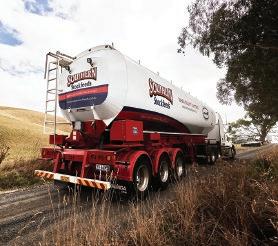




BY RICK BAYNE
DAIRY FARMING is all about sharing successes for Greg and Kim Wilson.
The Irrewillipe sharefarmers took out the premier title in the 2024 Great South West Dairy Awards — the Dairy Farm Business Management Award — largely due to the success of their share agreement.
Now they’re keen to share their positive story of their sharefarming journey to show that it can be a great way to enter the dairy industry.
Greg and Kim have been on the farm owned by the Richmond family for six years and have become staunch advocates for the sharefarming system.
Greg grew up in the area with his dairy farming parents and used to drive past this farm on the bus on his way to school.
Greg’s family farm was sold in 2014 and he met Kim while studying agriculture, both worked in northern Victoria for a few years until the sharefarming opportunity came up in 2018.
Kim had grown up on a farm in southern NSW and worked in ruminant nutrition for a stock feed company, while Greg had several on-farm jobs including operating his family’s dairy farm with his brother.
He had known the Richmond family since working on their mixed enterprise farm at Little River.
They wanted to expand into dairy and in 2018 spoke with Greg and Kim about sharefarming together.
“They are a progressive family and I looked back fondly on my time working there and often spoke to them about opportunities,” Greg said.
Greg had worked on a 600-cow corporate farm and Kim had worked around large farms and they were excited about the opportunities that dairy could provide.
“Sharefarming can have a fairly negative rap in the industry at times,” Kim said.
“In my prior role, you always heard the negatives about sharefarming and relationships, it was never about the good things.
“That’s why we like to tell our story. It has been a great thing for us and a fantastic way to get into the industry on a reasonable-sized farm.
“It can be a really positive thing.”
Another driver at the time was the dairy industry downturn.
“From an investment point of view, it was the perfect time to get in,” Greg said.
“We were confident the business would bounce.”
The milking platform is 590 hectares, but the land covers a total of 1100 hectares with grazing areas and run-off blocks.
The Wilsons and their 10 full-time staff now run between 1100 and 1200 medium-to-large mostly Holstein cows, with a few cross-breds and Ayrshires.
They bought 700 cows off the previous farm owner.

“We quickly grew our herd,” Kim said.
“We realised we needed to milk more cows to service debt and to grow our business.
“Soon after we started here, the Richmond family bought the farm next door so that gave us good scope to grow,” Greg said.
The two farms have been combined to run as one business and the second dairy will be in use in the next 12-18 months.
“We will have two functional 60 and 50-bale rotary dairies, so we think 1400-1500 cows is probably the sweet spot,” Greg said.
Starting to run the second dairy wasn’t an option for a couple of years during COVID-19 because they couldn’t get enough staff, but they now have a good team, half made up of locals and half backpackers.
The cows are producing 600-650kg MS, something they continuously try to improve through feeding and breeding.
“We just try to breed a better cow that is sound and will have longevity in our herd,” Greg said.
“We’re pasture-based and focus on grass first and foremost and then supplement feed with grain and silage when needed.
“We’re generally lucky with growth, but this year is a challenge. It has been a tough autumn, but we try to be prepared for dry periods. We’ll come out of it all right.”
They calve four times a year, all to timed AI, with the herd split for two calvings in autumn and two in spring.
They continue to see the importance of partnerships and relationships, and not just in the sharefarming agreement.
“We’re fortunate because we both had trust in one another,” Greg said.
“There have been some frank and robust discussions, especially in the early days, but they came from a good spot because it was about getting better at what we’re doing.
“It’s a real partnership. To make it work, you’ve got to speak your mind and have respect at all times.”
Kim adds that it’s important not to have an “us and them” attitude and to look to achieve things together.
“It was a huge risk, but it’s something we wanted to do and we’re really enjoying the industry,” she said.
“Once you commit to it, you have to make it work.”
While they are committed to the partnership, they also have long-term plans to buy land, even if it’s an outpaddock attached to the business.
“We don’t have a timeframe on it from either side; we see sharefarming as a long-term venture,” Kim said.
The award was based on their positive relationship and identifying and managing risks.
Having fodder reserves and going into a fresh milk contract with Coles three years ago have helped to address risks.
“We were lucky to get that,” Kim said.
“We tried once and they gave us things to work on – mostly increasing the fat percentage, which was about feeding the cows more consistent balanced rations.
“We weren’t ready the first time. We hadn’t bedded down the business enough to know we could meet those targets, but we fixed things and it has been a fantastic contract for us.”
While they have achieved some great things, Greg and Kim keep coming back to relationships in the sharefarming agreement and beyond.
“It’s partly due to the great relationships we have with industry people right through our business, ag contractors, vets, semen reps that add great value to our business,” Kim said.
Building a great team of staff around them is also key to their success.
“We became aware quite early how important relationships are and we have continued to build on that.”
They both advocate for the sharefarming system – with some sage advice.
“Do your groundwork first on the arrangement and make sure there’s no grey area,” Greg said.
“Approach it as a team and have a real understanding of what you’re getting into, and have a clear understanding of who is responsible for what and your expectations.”
“It all comes down to relationships and being able to communicate.”
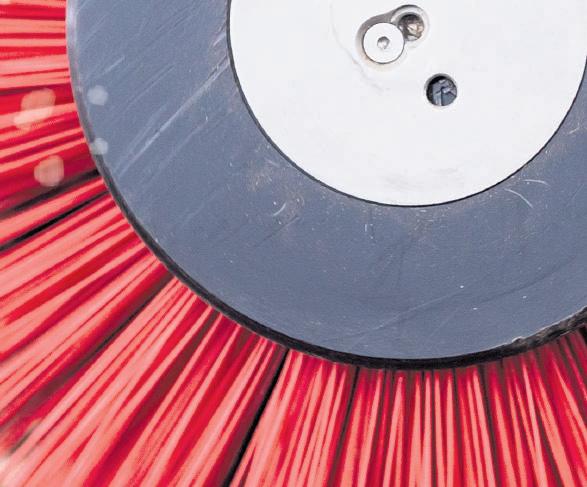





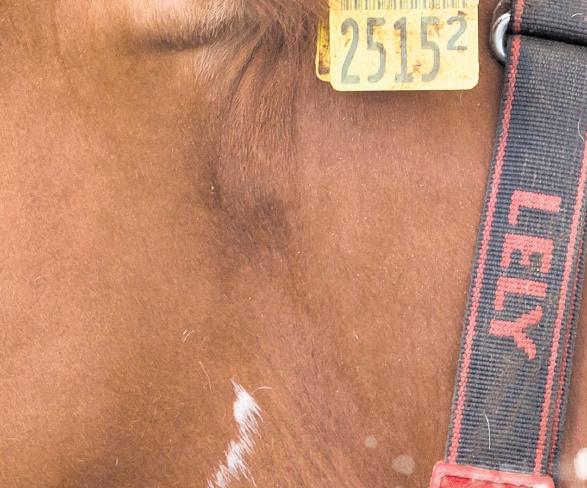





As life speeds up, our time is becoming increasingly valuable. Whether it is being able to have breakfast with the family before the kids head off to school, or future proo ng the farm by taking the requirement of being in the dairy every morning and evening for milking, we have a solution for you. Lely have been at the forefront of agricultural innovation since 1948. Although becoming increasingly popular in the last 5 years in Australia, Lely are not a new business, and come with an established reputation as the market leaders in robotic technology, with over 1600 active patents protecting their inventions.
We do the job right, and we do the job well.
The same people designing your dairy, are the same people who are servicing your dairy, which ensures your dairy is designed with future servicing and longevity at the forefront. We don’t have to bring in different teams, we are all based here, in Allansford, at your service. We don’t need to run fancy advertising campaigns – we can show you our products work –through their long term reputation, and from our valued clients.
“After milking with Lely robots and seeing the huge bene ts that it has given our family, staff and cows it was an easy decision to convert our second dairy to Lely robots as well”.
“Excellent service, not just at the start but when everything is well used and covered in dust, which is more important”
To chat about future proo ng your farm, give us a call 1300 00 7937
BY RICK BAYNE
ANSWERING A call to clean a farm house at Glenfyne has led Kerry Hume to one of the proudest moments in her life.
Kerry received the Employee Award at the 2024 Great South West Dairy Awards for her dedication and teamwork at Aurora Dairies’ Glenfyne farm, where she is second in charge. Not bad for someone who came to the property for a cleaning job.
Although she didn’t grow up around farming in her native New Zealand, Kerry had held a few jobs in dairy before she found herself at the Glenfyne farm.
“There was an ad on Facebook looking for someone with an ABN to clean two farm houses,” Kerry said.
“I came here and cleaned the houses and at the time, the farm manager, Dave Stewart, was looking for another full-time staff member. He offered me the job and this house and I started in April 2022.”
It has been a meteoric rise, with Kerry finally finding a place where she could fully embrace the dairy industry.
The unexpected employee award was the icing on the cake.
A video of the presentation was sent to Kerry a few weeks after the ceremony.
“I watched it and thought, for the first time in my life, I am so proud of myself. I worked so hard for the past two-and-a-half years to get here, and someone obviously thought I was worthy of this award.
“I hate attention and don’t expect awards but for someone to recognise me like this makes me feel so proud.”
Kerry, husband Mark and their three children sold everything and moved to Australia in 2016. She had dabbled in dairy back home.
“We rented a house on a small dairy farm. I was curious so I said to the farmer `can I have a go?’ He said yes, so I put the cups on and thought it was pretty cool.
“He taught me what to do and showed me around the farm.”
She later worked in housekeeping, bar management and driving before turning to dairy in 2015 when Mark fell ill and left his work in business development.
Kerry enjoyed farming, although she didn’t always get the support that she felt she needed as a new farm hand, and when it came to moving to Australia, it was decided she’d apply for a dairy job, securing work in Gippsland where the farmer happened to be a Kiwi and could help with the relocation red tape.
“It was a huge move, but there haven’t been any regrets,” Kerry said.
Mark later returned to work, so Kerry left the farm and started a cake decorating business –plus a sideline in making slime for kids.
When a new job opportunity fell through for Mark, Kerry returned to dairy on a large farm at Hawkesdale.
“Dairy is a skill I can fall back on when needed,” she said.
She worked there for 10 months before Mark got a new job and Kerry returned to her cakes and slime and some occasional cleaning jobs, including one that was about to open the door on a new chapter.
Kerry started as a senior farm hand, but was quickly elevated to second-in-charge with a new title of assistant manager in the wings. Her resumé shows she loves variety and learning new things, a quality that is well received on the farm.
“I love to learn new skills,” she said.
“My dad’s an engineer, so I love to make things and know how things work and how to fix things.”


These practical skills have earnt her the nickname MacGyver in some circles.
“I like to MacGyver things,” she said.
“If anything breaks, I like to think how will I MacGyver it until we can get it fixed.
“One thing I fixed in the dairy nearly two years ago is still going. I hated school, but I’m a self-learner with a lot of things.”
That thing she fixed in the dairy was a grain chute dropping into the feeder.
“A part of the frame had broken. I looked for something to put in there to stop the grain from falling out,” she said.
“We have dry cuffs made from wetsuit-like material to keep our forearms clean and dry during milking, and I grabbed one and put it in there, and thought it would work for a while. It’s still there and still working.”
Apart from her self-taught skills and the invaluable guidance of Dave and the Aurora team, Kerry has nearly completed a Certificate IV in Agriculture through RIST.
“I’ve had some ups and downs in dairy farming, but I really enjoy this farm and what Dave is teaching me,” she said.
The course is invigorating for Kerry.
“It has taught me that dairy farming is not just milking cows; it’s how you get the milk in the vat, from the time a calf comes out of a cow; it’s about their anatomy, their nutrition,” she said.
“It sparked interest that I never thought I’d have. I never thought I’d be into dairy farming like I am.”
Kerry also undertakes Dairy Australia short courses whenever possible.
The farm itself is also growing. The 270ha property was home to 350 to 380 cows when Kerry arrived, today they’re milking 519 Friesians and have had 313 calves born this year.
Kerry does “anything and everything”, from fencing and feeding to milking and maintenance and supervising two other staff members when Dave is away.
“My whole life, I’ve always been a follower, not a leader, so I’m still learning to be a leader,” she said.
“I have become more confident in myself; something I’ve never been before.”
Kerry is also keen on health and nutrition.
“I’m at the stage that I can look at a cow in the paddock and think she doesn’t look right and generally pinpoint what’s wrong.”
Her involvement in Aurora Dairies safety committee and women’s impact program also contributed to her award.
“I’m one of 10 women in the impact program, and it helps us with confidence and become emerging leaders,” she said.
Each participant is doing a project to help the company, with Kerry developing a project involving mental health in the workplace and


looking at new ways to support people to reach out for help if they need it.
“I’ve battled mental health problems myself and it’s hard to put your hand up and say you need help, but it’s okay not to be okay,” she said.
“I want to build stronger relationships between managers and staff so they can be on the same wavelength about how they feel in the job.”
Kerry has featured on a banner promoting Aurora Dairies at field days in NZ and has been chosen as a Victorian learner ambassador for Adult Learning Australia.
“I enjoyed learning as an adult and found it easier than school,” she said.
She’s now happy in her job.
“I’d like to be a manager one day, but not yet,” she said.
“I’d also look at doing my diploma, but will take a break after the certificate.”
BY RICK BAYNE
ALISTAIR HARRIS looks on his award for natural resource management as a family honour; one that recognises the work of previous generations and sets the scene for the future.
The Harris family won the Natural Resource Management and Sustainability Award at the 2024 Great South West Dairy Awards. Judges praised Alistair’s installation of solar pumps, hump and hollow drainage, establishment of native shelterbelts, use of effluent water for irrigation and yard wash, and energy saving technologies in the dairy.
“Alistair is a worthy winner as he demonstrates a strong commitment to natural resource management, motivated by building on a family legacy to pass on the farm to the next generation in a better condition,” the judges said.
Alistair initially didn’t think they were worthy of the honour.
“It’s just the way we farm,” he said.
“We like new technologies to be profitable and sustainable. A lot of the credit for the reward should go to my parents and grandparents and now we have four kids, we want the opportunity here for them if they want to take it on.”
Alistair’s grandparents Phil and Muriel settled the farm at Larpent, which was continued by his parents Phillip and Kate.
Today Alistair and his wife Caitlin, both Dookie Agricultural College graduates, are on a business partnership agreement and working through a succession plan as they transition to buying the farm.
There are a few statues and images of sheep – along with a small flock – reflecting Caitlin’s heritage from Deniliquin – but the farm has always been dairy-based and usually milks 700 to 800 Holsteins, depending on the season.
This season has been very dry, so numbers will be down to 750.
“We’re fully reliant on town water at the moment,” Alistair said.
“We haven’t had an autumn break; all our dams are empty and we’re TMR feeding in the paddock.”
The farm usually receives 850mm average rainfall, but is well below that at the moment, with the driest year since 1967.
“We’re three quarters of the way through calving and usually calve to green grass, but we’re not this year,” Alistair said.
“We’re feeling the pressure, especially with a lower milk price going forward, but we’ve got an excellent network of suppliers that support our operation to help us manage through tougher years.”
Part of their success in the NRM award stems from their desire to be prepared for tough times.
“We’re forward-thinking farmers and invest in infrastructure to make us more sustainable going forward and to be prepared for the worst possible seasons,” Alistair said.
“When the milk price has been good, we’ve invested in the infrastructure.”
They have also changed things on the land, including introducing maize three years ago and cutting a lot of grass silage.
The maize has been helpful.
“At the moment, we’d be lost without it and wouldn’t have our fodder reserve,” Alistair said.
“We’ve got about 500 tonne of maize in storage that we’ll start feeding out.”
They have perennial rye-grasses as a base and bring in Italians as needed, and use pumped effluent to grow the maize, adopting minimum tillage methods and direct seeding, backed by a lot of soil testing.
The farm has a high stocking rate, about



2.4 cows per hectare, but that will be partly addressed by an underpass to be installed this year bringing an outpaddock into the milking platform, adding about 80 hectares to the existing 250.
Another priority addressed in recent years was the dairy, with a new 64-bale rotary replacing the former 33-year-old, 40-bale facility.
“The old dairy was too time consuming. We’ve cut about three hours off the milking time daily, which has been beneficial for the staff, and allows more family time.”
The farm has six full-time staff, plus Alistair, and Phillip, who remains active.
Calving starts at the end of April, with heifers first in line, with breeding priorities centred on high production and strong feet to cope with walks up to 2.3km from the dairy.
“We like big-bodied Holstein cows, and we have a high feed intake to keep production up,” Alistair said.
They are producing about 650kg/MS/cow and just on six million litres annually.
Although initially unsure of their credentials for the award, Alistair can see the environmental benefits in their farming practices.
“For example, we’ve done a lot of drainage work to turn some of our wettest paddocks into some of our driest paddocks.
“In years gone by, we’d have water running off paddocks, now we can graze them without causing damage.”
To cope with the water situation, Alistair has installed four solar pumps for transferring water from different locations, mostly back to

the dairy for stock.
The dairy doesn’t have solar power, but recycled effluent is used for yard washing and rain or town water for washing the plant.
A new plate cooler heat exchange cools the milk to go into the vat at 4°C, leading to a big energy saving.
The new dairy has cut milking sessions by three hours a day, leading to another energy saving.
“At the moment we finish milking when it’s dark, so solar panels wouldn’t help,” Alistair said.
“We’re always looking for new technology, but we want it to be proven and to work for us.”
He was quoted $350,000 for panels and battery, but couldn’t justify the expense at more than 10 times the current annual power bill.
Instead, they have invested in other things around the farm to get a quicker return on investment, including a fourth effluent pond

for a total of 14 Ml of effluent storage.
Planting trees has been a long-term activity.
“We aim to have a tree line on every fence for shade and shelter, which is good for the environment, but also good for the cows in winter and summer,” Alistair said.
About 60 per cent of the farm is covered, with most of the areas remaining on blocks purchased over the past five years for young stock and dry cows.
Next on the agenda are more underground pipes to get effluent water further away from the milking platform, and 15-20 hectares of drainage improvements per year, increasing and improving the milking platform.
Alistair said a good network of advisors and friends in all types of agriculture had helped them achieve their goals.
While a bit overwhelmed by the award, he admits it’s good for the industry to showcase good practice.
A STUDY tour to New Zealand could lead to new-look regenerative and sustainable farming practices being trialled in south-west Victoria.
Local farmers and Heytesbury District Landcare Network representatives have recently returned from the study tour funded by the DemoDAIRY Foundation with fresh ideas that could be adopted locally.
Three HDLN representatives focused on regenerative or sustainable dairying practices, including practices that reduce emissions or improve nutrient management and waterway health.
HDLN landcare coordinator Michelle Leech said the regen group had the opportunity to speak to a number of different researchers working on innovative projects.
“It was learning opportunity after learning opportunity, and we were most excited about the connections we made,” Michelle said.
“Having that opportunity to discuss what they’re doing and to create that connection to help figure out how we might apply those innovations locally is invaluable.”
The HDLN regen team visited the South Island Dairy Event and looked at bale grazing on a farm at Hororata, various grazing management techniques and multispecies seed blends at GGW Seeds Kimihia Research Centre and the Massey University Whenua Haumanu project.
The representatives will meet soon to review ideas that could be trialled or applied locally and report to the DemoDAIRY Foundation.

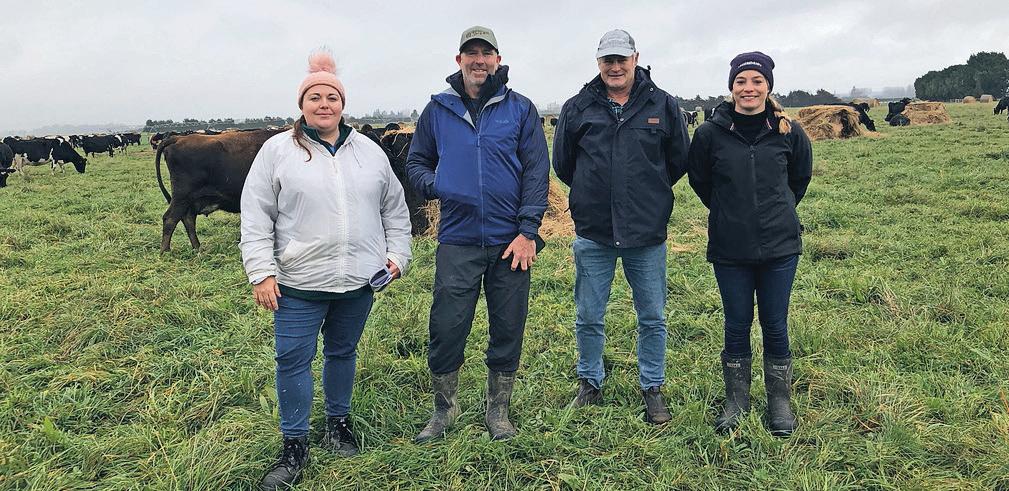
While impressed with the level of innovation in NZ, they found Australia leading in some areas.
“It was nice to see how they are innovating, but we also found some things that we are doing really well in Australia compared to NZ,” Michelle said.
Tony Evans from Camperdown Compost and soil consultant Jade Killoran from Healthy Farming Systems joined Michelle on the tour and said it had been a valuable mix of knowledge finding and relationship building.
Mr Evans, who is also a DemoDAIRY Foundation board member, said the regen group would get together to work out what
could be considered for local trial work.
“It may not be anything straight away, but we intend to keep in contact with the researchers and at some stage something will be suitable for on-farm commercial trials,” he said.
“That’s where opportunities will open up for DemoDAIRY Foundation to assist with field trial work.
“DemoDAIRY Foundation is about incentivising innovation and always looking for ways to support a sustainable and profitable future for the dairy industry.”
DemoDAIRY Foundation supported and organised the tour. For more information, visit: https://www.demodairy.com.au
By GEOFF ADAMS
South-west Victoria has recorded a decrease in the median price per hectare, for the first time in 10 years, a new report has found.
The 2024 Rural Bank Australian Farmland Values Report found the median price in south-west Victoria for 2023 was $19,161 per hectare.
This result marked the first time farm land value had declined since 2013.
For south-west Victoria, the fall in prices followed a 34 per cent growth rate in 2022.
The number of transactions for the region declined in 2023, with 286 sales, a year-on-year fall of 23 per cent.
The downward trend in median price per hectare for the south-west region came on the back of a strong decline in transaction volume in the higher price range of $20,000 plus per hectare.
An increase in the total proportion of medium price range transactions contributed to the marginal decline in median price per hectare in 2023.
The report found Australian farmland values have now recorded a full decade of unbroken growth.
While 2023 saw a rise in the national median price, it also marked a shift in the market as the pace of growth slowed considerably.
The WestVic Dairy board plays a pivotal role in guiding the allocation of the dairy farmer levy in support of farmers in our region.
There are four director positions available. These positions offer the opportunity to give back to the dairy industry while enhancing your leadership capabilities. If you are up for the challenge of this fulfilling role, we invite you to find out more and apply now at westvicdairy.com.au.
Applications close Thursday 15 August 2024